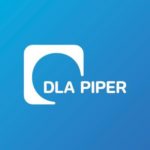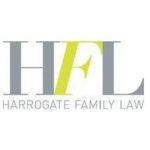Andy Bowen reviews the proposals for the reform of disclosure ‘The new rules introduce the concept of “basic disclosure“, being disclosure of key documents relied on by the disclosing party and which are necessary for other parties to understand the case they have to meet.‘ Proposals for the reform of disclosure were published by the …
Continue reading "Disclosure: Now you see it"
This post is only available to members.
Jeremy Andrews and Giles Hutt look at the latest proposals for disclosure reform ‘A party can seek to overwhelm its opponent with disclosure, making it more difficult for them to find the few documents that make a real difference to their case.’ Disclosure reform is not new. Lord Woolf attempted it in the 1990s, when …
Continue reading "Disclosure: Forcing change"
This post is only available to members.
Lisa Boyd looks at the question of confidentiality and disclosure in the light of the recent TCC guidance note ‘The guidance note suggests that confidential information should be in a self-contained schedule or annex and that any confidential information served electronically should be further protected by way of passwords etc.’ On 17 July 2017, the …
Continue reading "Disclosure: Hidden in plain sight"
This post is only available to members.
Emma Doughty explores the practical challenges when dealing with the ongoing duty to provide full and frank disclosure in financial proceedings ‘It is a decision for the client as to how much they investigate their interest in a discretionary trust, but they should be warned that if it later transpires that they have failed to …
Continue reading "Disclosure: Coming clean"
This post is only available to members.
Gwendoline Davies guides the way through the obligations of data protection and disclosure ‘Whenever a data controller wishes to rely on the disproportionality or the privilege exemption, it should be prepared to justify that decision, with evidence in support.’ The extent of a data controller’s obligations to respond to data subject access requests (DSARs), and …
Continue reading "Disclosure: Blind data"
This post is only available to members.
Eugenie Taylor looks at whether it is possible to exonerate a party from their duty of disclosure ‘It could not be right, if a finding was made that the deceased deliberately had misled the appellant and the court, for her conduct to be saved by a delay on the part of the appellant in discovering …
Continue reading "Disclosure: Managing management"
This post is only available to members.
David Sawtell looks at how technology might help with e-disclosure ‘A party or a fee-earner considering computer-assisted review should appraise the different available products on the market, as well as develop an awareness of the statistical issues involved.’The proliferation of electronic documents has increased the workload and cost associated with disclosure. The use of technology …
Continue reading "Disclosure: A binary breakthrough"
This post is only available to members.
David Sawtell looks at how technology might help with e-disclosure ‘A party or a fee-earner considering computer-assisted review should appraise the different available products on the market, as well as develop an awareness of the statistical issues involved.’The proliferation of electronic documents has increased the workload and cost associated with disclosure. The use of technology …
Continue reading "Disclosure: A binary breakthrough"
This post is only available to members.
Wills & Trusts Law Reports | October 2016 #163Evelyn Irene Farmer (the deceased) died on 12 January 1996 leaving a will dated 10 August 1993 (the will). The claimants were five of the ten charitable remaindermen under the trusts created under the will. They took absolutely upon the deaths of the deceased’s son and daughter in law. The deceased’s son was deceased but the daughter in law was still alive, and consequently the claimants’ interests were yet to fall into possession. The defendants were the executors of the deceased’s estate.
In 2007, the defendants wrote to the claimants enclosing an interim...
Wills & Trusts Law Reports | October 2016 #163In June 2010, Michael Wood admitted to under-declarations of income tax for the years 2002-03 to 2007-08 amounting to £743,424 and made a payment of tax of £352,983. This was made with a view to taking advantage of an HMRC disclosure opportunity for medical professionals called the ‘Tax Health Plan’, with a fixed tax geared penalty of 10% of the amount of tax under-declared. HMRC argued that the disclosure fell within the Tax Health Plan and opened a Code of Practice 9 investigation into his affairs. Michael Wood agreed to provide a disclosure report (the disclosure report) into his affa...






